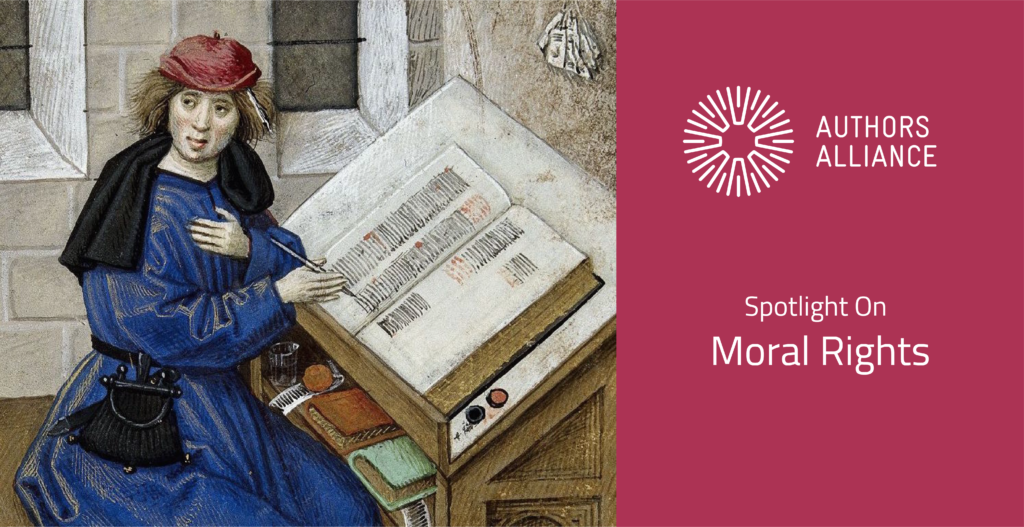
In March 2017, Authors Alliance submitted comments in response to the U.S. Copyright Office’s study of moral rights. We voiced our support for creators’ rights to integrity and attribution (subject to limitations and exceptions that protect downstream creative reuse), and our belief that these non-economic authorial rights should be formally recognized in U.S. copyright law—as they are in many other countries. We also encouraged the Copyright Office to consider recognizing other non-economic author rights, namely, the right to revive one’s work if it is no longer available commercially and the right to revise one’s work over time.
Last week, the Copyright Office released a report, Authors, Attribution, and Integrity: Examining Moral Rights in the United States, which provides a review of the U.S. moral rights landscape and recommendations for enhancing existing moral rights protections. The Copyright Office identifies three principles that guide its analysis of a U.S. moral rights framework: respecting foundational principles of U.S. law (including the First Amendment, fair use, and limited copyright terms), appreciating the importance creators place on their attribution and integrity interests, and recognizing and respecting the diversity among industry sectors and different types of works.
Based on these principles, the Office concludes there is no need for the creation of a blanket moral rights statute at this time. Instead, the Office recommends that Congress should consider legislation targeted at specific areas, including amending the Lanham Act and the Visual Artists Rights Act (VARA) to better protect attribution and integrity interests, expanding recourse for removal or alteration of copyright management information, and adopting a federal right of publicity law. These recommendations are detailed in the Office’s report.
Although we are disappointed that the Office declined to recommend that Congress consider new statutory moral rights legislation at this time, Authors Alliance commends the Office for recognizing that attribution and integrity provide meaningful incentives to authors to create new works and that the value to authors of reputational enhancement by virtue of public dissemination of their works is meaningful to authors.
Authors Alliance will continue to speak out for the right of authors to be acknowledged as creators of their works. As we wrote in our founding Principles and Proposals for Copyright Reform, attribution serves not only the interests of authors, but also the reading public’s interest in knowing whose works they are consuming and society’s interest in an accurate record of the intellectual heritage of humankind.
Discover more from Authors Alliance
Subscribe to get the latest posts sent to your email.
